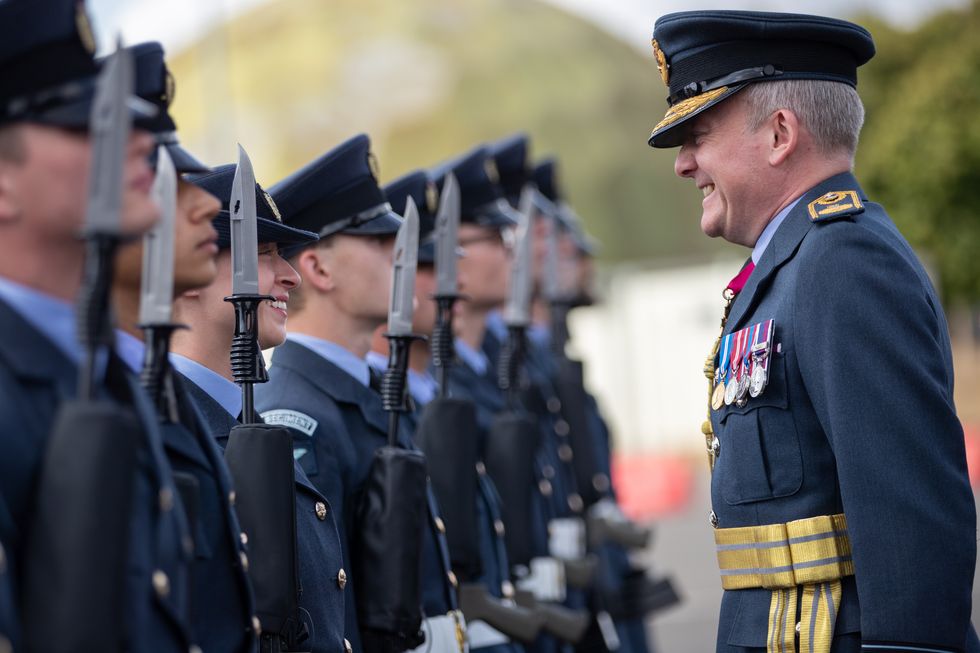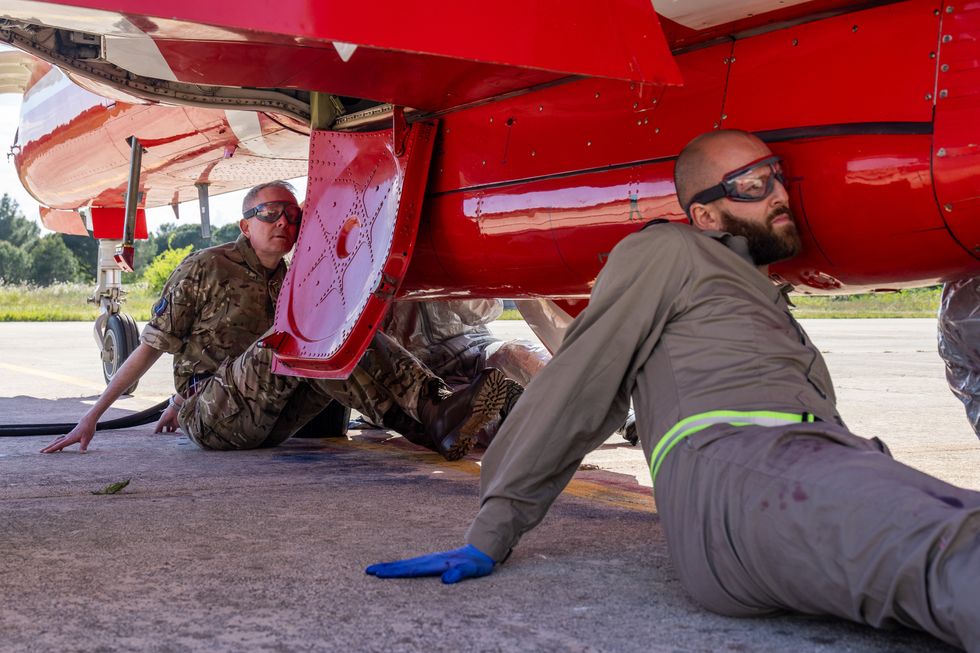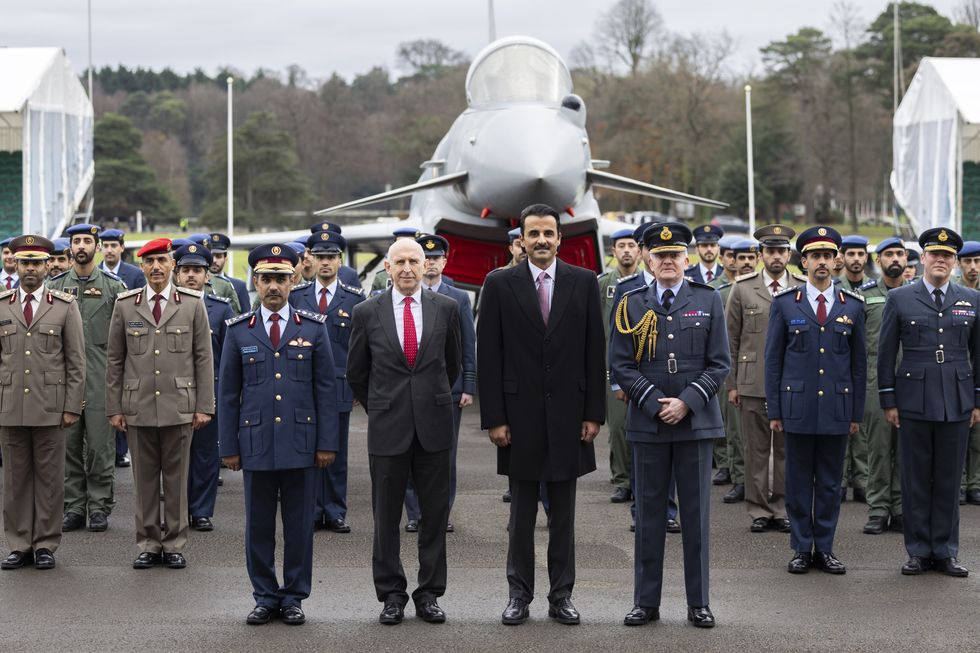WITH rains pounding her village in eastern India this week, Neelam Singh weighed the options; walk several miles through the jungle to buy sanitary pads or cut a strip from one of her mother's old polyester saris.
The 18-year-old used up her last pad during India's weeks-long coronavirus lockdown, which campaigners say has eroded hard-won progress on menstrual hygiene, forcing many women to go back to using scraps of unsuitable cloth or dirty rags.
Supplies of sanitary products ran low across the country during the lockdown, making them too expensive for many girls and women at a time when millions lost their livelihoods.
"Cotton cloth is expensive and a lot of girls in my village use synthetic, but it leaks and is not comfortable. I don't know what I'll use when I get my next period," Singh said.
"There's no pharmacy in the village where I can buy pads," she said by phone from eastern Jharkhand state. During the lockdown, she was too scared to walk down the deserted jungle path to stock up at the nearest market.
While the government listed sanitary pads as essential goods during the coronavirus shutdown and asked local health workers to distribute them in rural areas, delivery has been patchy.
Activists fear years of steady gains to improve access to sanitary products and fight "period poverty" - achieved through raising awareness and breaking taboos in government departments and schools - could be rolled back.
"Girls in the last few years had started buying pads or had started asking their mothers for them in both urban and rural areas," said Bharathy Tahiliani, who drafted menstruation lesson plans for schools in western Maharashtra state.
"There is regression now. There are no field interventions, no mentoring or hand-holding," Tahiliani said. "We've lost ground."
RAGS AND LEAVES
Indian women face many challenges during their periods, especially in rural areas, where a lack of awareness and the cost of pads mean many instead use unhygienic methods, including rags and leaves, increasing the risk of infections and disease.
Nearly 60 per cent women in the age group of 15 to 24 do now use hygienic methods to manage their periods, according to India's most recent health survey.
In the last few years, India has started distributing sanitary napkins in schools, installed pad vending machines in villages, boosted production and scrapped taxes on pads.
Meanwhile, classrooms began sessions on menstrual hygiene and Bollywood made its first film on periods in 2018 to break taboos around the subject and boost awareness.
However, a survey last month by Menstrual Health Alliance of India - a network of NGOs - showed lockdown closures of schools and community centres had severely hit access to sanitary products.
Campaigners working with women and girls in rural areas, urban slums, brothels and shelters for rescued sex-trafficking survivors said that while there was a critical need for pads, they had become the lowest priority during the pandemic.
India's women's ministry said the government had undertaken "a number of measures to ensure local availability of sanitary napkins to women and girls at affordable prices".
More than 6,000 state-run pharmacies were selling napkins for 1 rupee (about $0.01) and more than 14 million were sold between March and May under a government scheme, a ministry spokeswoman said, adding that adequate stocks remained.
Campaigners distributing groceries among poor families said women often rummage through the food bags looking for pads.
'FOOD, NOT PADS'
When Aqsa Mushtaque, 25, a relationship manager at an Indian online classifieds company, got a call from her maid saying she did not have money to buy sanitary pads for her daughter, she went out and ended up distributing scores of them in slum areas.
"The women in the house don't get any pocket money. And they don't like telling their husbands about their periods or pads and they find it much easier to use cloth," she said from the eastern city of Kolkata.
Some women in rural areas also feel conscious while using sanitary napkins for the sound the adhesive strip makes when removed from their underwear, especially during the lockdown when male family members are also all at home.
"We never thought privacy could be an issue," said Murari Choudhary, director of Network for Enterprise Enhancement and Development Support, an alliance of charities working on sexual and reproductive health and rights.
"When we started manufacturing reusable pads, we had to replace the adhesive with buttons so there is no sound when they change."
More often than not though, scarce housekeeping funds mean women put sanitary pads at the bottom of the shopping list.
Gautami Gade, 26, who was studying in the western Indian city of Pune, stopped using cloth during her periods six years until the lockdown forced her to return to her village in Solapur.
"I have started using cloth again," she said. "If we have 30 rupees, I would spend it on food, not pads."














 Sir Richard at the graduation parade at RAF Honington in 2022
Sir Richard at the graduation parade at RAF Honington in 2022 Sir Richard with ground crew of the Red Arrows at Zadar Air Base, Croatia, 2024
Sir Richard with ground crew of the Red Arrows at Zadar Air Base, Croatia, 2024 Sir Richard with the king, Admiral Sir Ben Key, and Captain William Blackett aboard HMS Prince of Wales
Sir Richard with the king, Admiral Sir Ben Key, and Captain William Blackett aboard HMS Prince of Wales Sir Richard Knighton with the Emir of Qatar, Sheikh Tamim bin Hamad Al-Thani, during the Qatari royal state visit to the UK
Sir Richard Knighton with the Emir of Qatar, Sheikh Tamim bin Hamad Al-Thani, during the Qatari royal state visit to the UK Sir Richard with Air Marshal AP Singh, vice-chief of air staff
Sir Richard with Air Marshal AP Singh, vice-chief of air staff Sir Richard at the Defence and Security Equipment International (DSEI) 2023 at ExCel London
Sir Richard at the Defence and Security Equipment International (DSEI) 2023 at ExCel London Sir Richard with prime minister Sir Keir Starmer
Sir Richard with prime minister Sir Keir Starmer

 Brand remains silent as he faces reporters after brief court hearingGetty Images
Brand remains silent as he faces reporters after brief court hearingGetty Images  Media gather outside London court as Russell Brand appears in sexual assault caseGetty Images
Media gather outside London court as Russell Brand appears in sexual assault caseGetty Images  Court sets 2026 trial date in case involving allegations against Russell BrandGetty Images
Court sets 2026 trial date in case involving allegations against Russell BrandGetty Images
Justin Bieber faces backlash for ‘I love you’ comment on 17-year-old star Ariana Greenblatt’s post